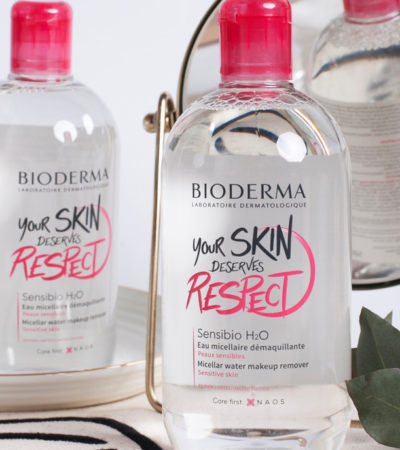Most women experience hair loss at some point in their lives (a recent study revealed it was 60%), but unlike with male hair loss, women’s hair loss is rarely talked about. Even hair loss products such as shampoos and supplements and hair loss clinics are all geared towards men with most of their marketing materials featuring before and after shots of male models. Which is why we want to lift the lid on hair loss or thinning hair in women; From the reasons as to why it happens to the products out there said to support, help and encourage regrowth. But most of all, we just want to start the conversation on why hair loss is not just a man’s issue
The Most Common Reasons…
Hormone Imbalance
Hair loss most commonly experienced after pregnancy or breastfeeding is largely due to hormones, which play a massive role in regulating the hair growth cycle. When you are pregnant your levels of Oestrogen increase, which can prolong the growth phase of the hair, meaning that less hair falls out and your hair appears thicker and more healthy. However, after you have given birth or finish breastfeeding your hormones then revert to normal levels and the hair that was supposed to fall out but your head held on to for longer, all fall out at what can feel like an alarming pace. It is important to remember that this is completely natural and nothing to be worried about and all you can do is support your body going through this change.
As a mother to two boys, I have experienced my fair share of post-natal hair loss. I found that every time I showered or brushed my hair, that it was falling out at a rate of knots, but when I spoke to my hairdresser he assured me that it was just a process I had to ride out. He also reminded me that of course, the hair will fall out mostly in these two moments as when my hair is tied up and un-tampered with it can’t fall out. So as soon as I set it free of a hairband, I was always going to notice the hair loss more at that moment.
Although, this is a cycle most women need to just ride out, there are a few things you can do to support your hair and scalp through this process. Aveda’s Invati Shampoo, Conditioner and Scalp Revitiliser help exfoliate and moisturise your scalp so that when the hair does try and grow back it can easily find its way through the hair follicle and come back strong and healthy-looking.
Stress-induced Hair Loss
Although much of stress we all feel is dealt with in the mind, the impact it can have on our bodies and physical health is evident in a number of ways. Hair-loss due to stress is not as uncommon as you might think. Due to the hair growth cycle, the hair loss may not happen straight away, research has shown that our mental health will take its toll on our hair about 6-12 weeks after the initial mental trauma or stress began. In November 2013, Margaret lost a much-loved family member in tragic circumstances. Approximately four to six weeks later, her hair began shedding at an alarming rate “Naturally this caused me great distress and I immediately went into panic mode, buying ‘miracle’ treatments, trying out crazy diets, even dousing my hair in melted coconut oil (which solidifies at room temperature) and covering it overnight in cling film. All to no avail.” Margaret then tried Nourkrin, but when she didn’t see instant results she wrote it off. However, she later learned that a friend of hers who had also suffered hair loss had tried Nourkrin too and found it worked brilliantly. The difference was that Margaret’s friend had stuck with the product understanding that due to the hair-growth cycle, these things take a bit of time. “Six months on my hair has greatly improved. My hairdresser was the first to comment, saying that she’d never seen it in such good condition. Even my once sparse eyelashes have thickened to the extent that I no longer need to use mascara.” But what is Nourkrin and how does it work? Nourkrin is a natural supplement that works with the normal Hair Growth Cycle to help normalise and maintain the overall life and function of the hair follicles. I spoke to the CEO who assured me that there were no side effects due to its ingredients being derived from a natural food source – they couldn’t say which one as it is very much a company secret due to the effectiveness of it and not wanting their competitors to get hold of it.
Whilst hair loss is not a life-threatening condition, it is most certainly a ‘life-altering’ one. So, although managing the stress is incredibly important in dealing with its symptoms, finding a great supplement that can help restore your hair back to its former glory is something worth taking the time and money to invest in.
Minerals and Vitamin Deficiency
A lack of B12 or Iron can both have a huge impact on your hair. When it comes to iron, it is a really important component in producing strong, healthy hair as it is a mineral that is essential in producing hair cell protein. If you are experiencing hair loss then it may be worth testing your thyroid or checking for anaemia, if those two things can be ruled out it may be a simple dietary adjustment to check that you are getting enough iron from your food. Iron-rich food comes in the form of dark leafy greens (like spinach and cavolo nero), steak and legumes such as beans and lentils.
A lack of B12 also can have an impact on the hair. In fact, the symptoms of iron-deficiency and B12 deficiency are very similar – with tiredness and lack of energy as the main indicators that you are not getting enough B12.
Elly Ling, Nutritionist comments that “B Vitamins are responsible for making sure the body’s cells are functioning properly as they convert food into energy, make new blood cells, which carry oxygen and nutrients to the scalp and hair follicles and maintain healthy cells all around the body, including skin and hair. There are eight B-Vitamins but Biotin, Niacin and B12 have been associated with maintaining healthy hair. However, most people are not deficient in Biotin and Niacin (or B-Vitamins in general) as they are available in lots of different foods. Except for B12, which is only available in animal products and therefore vegans may be more susceptible to deficiency”.
words by Sadie Reid














